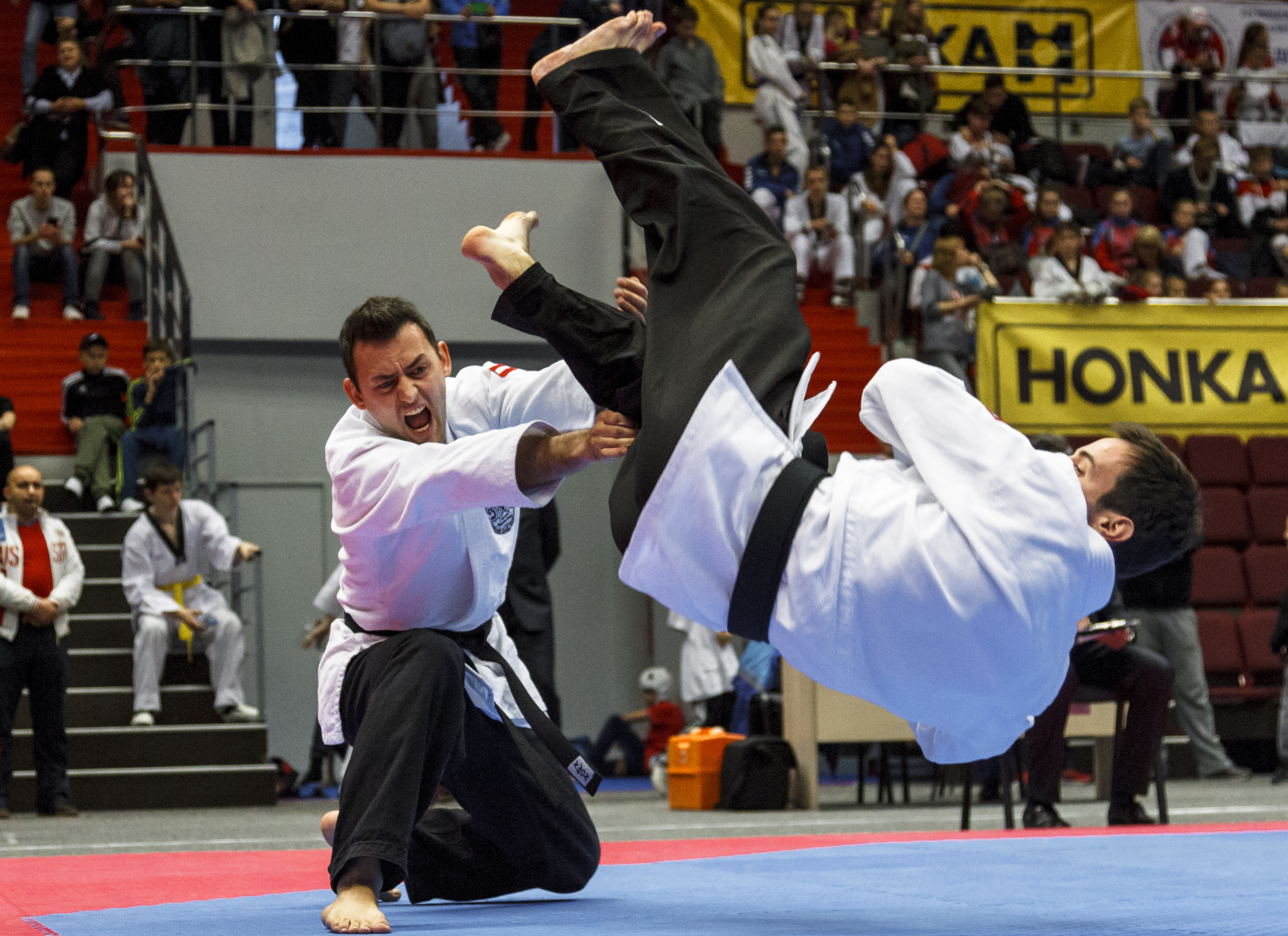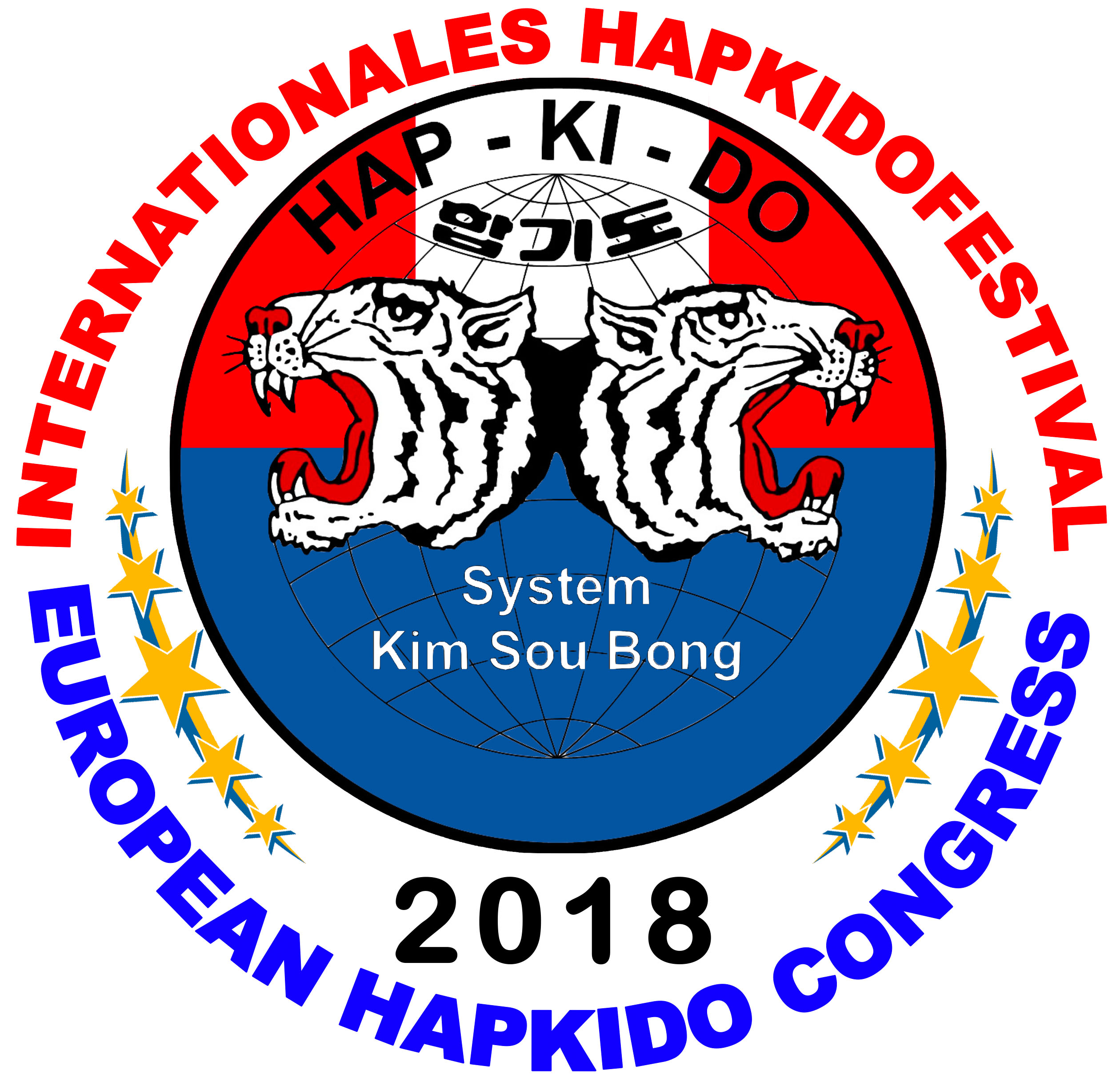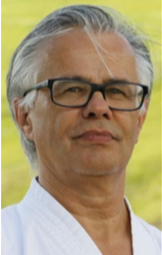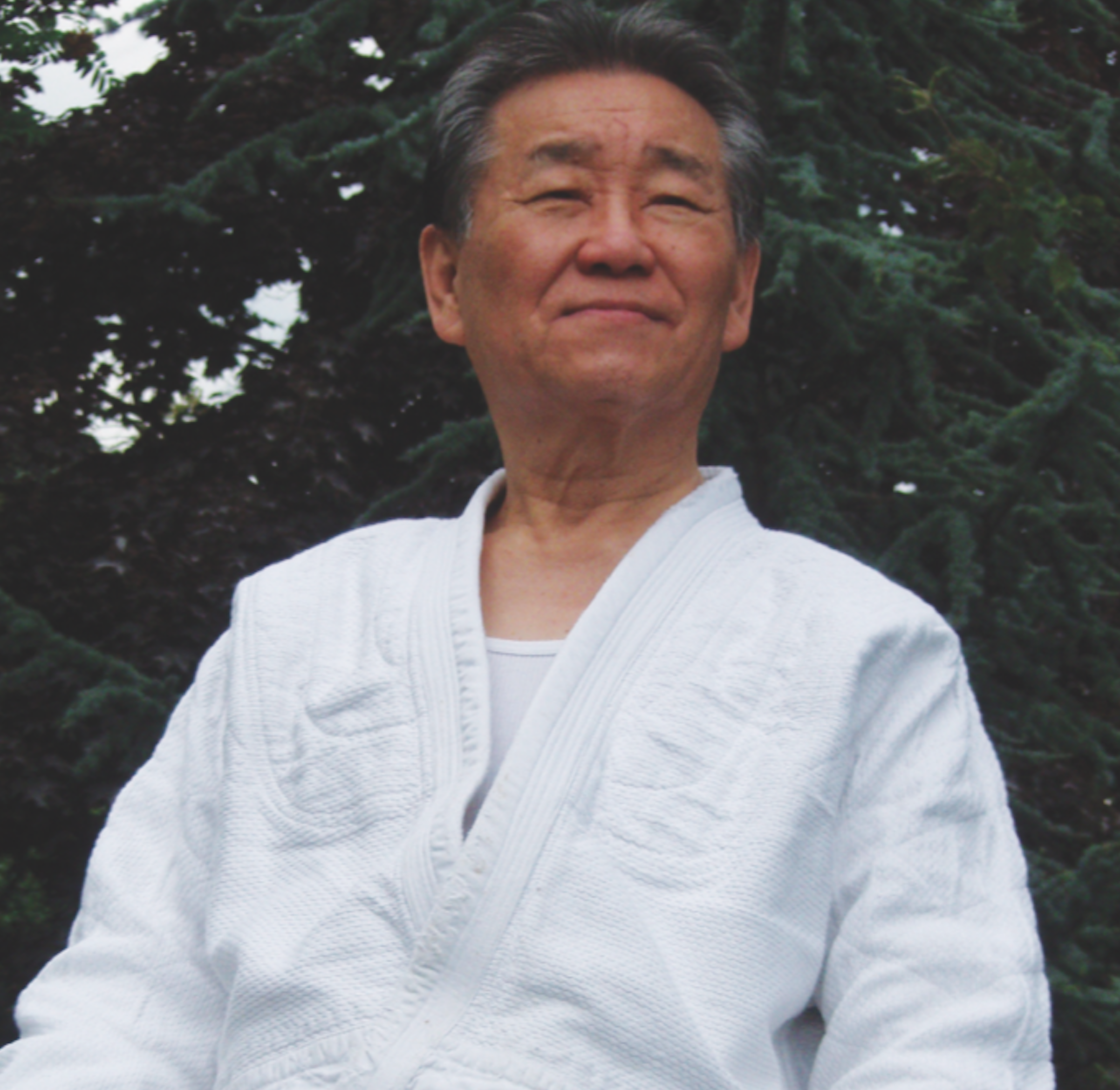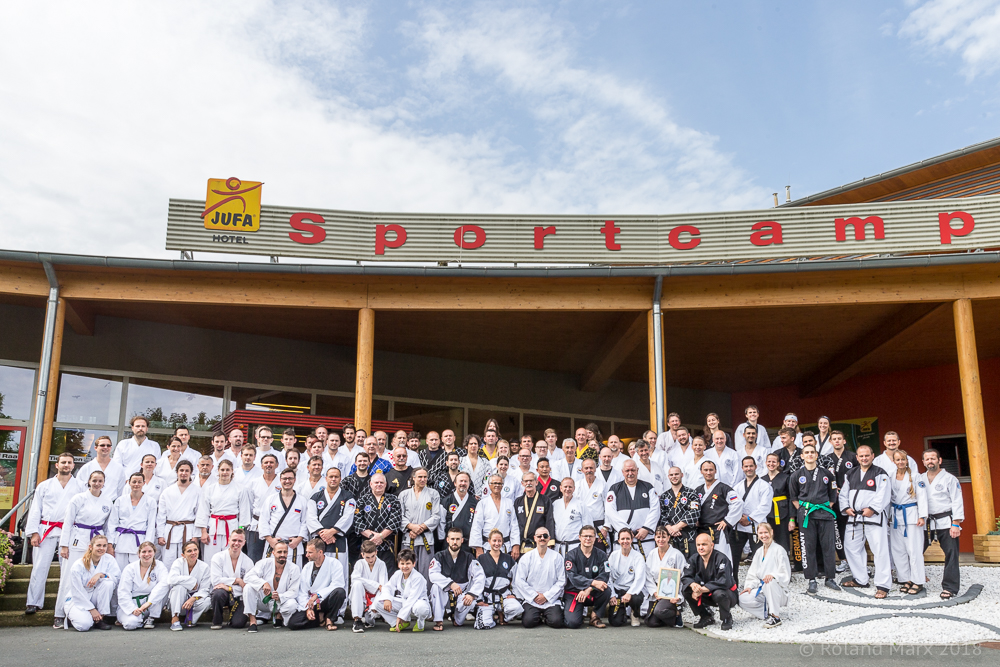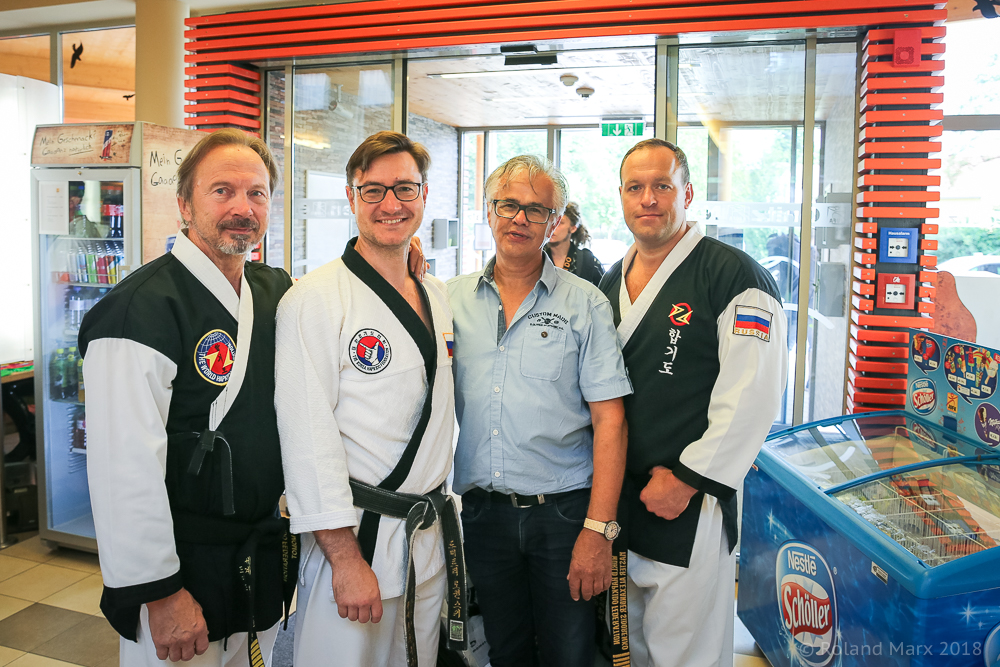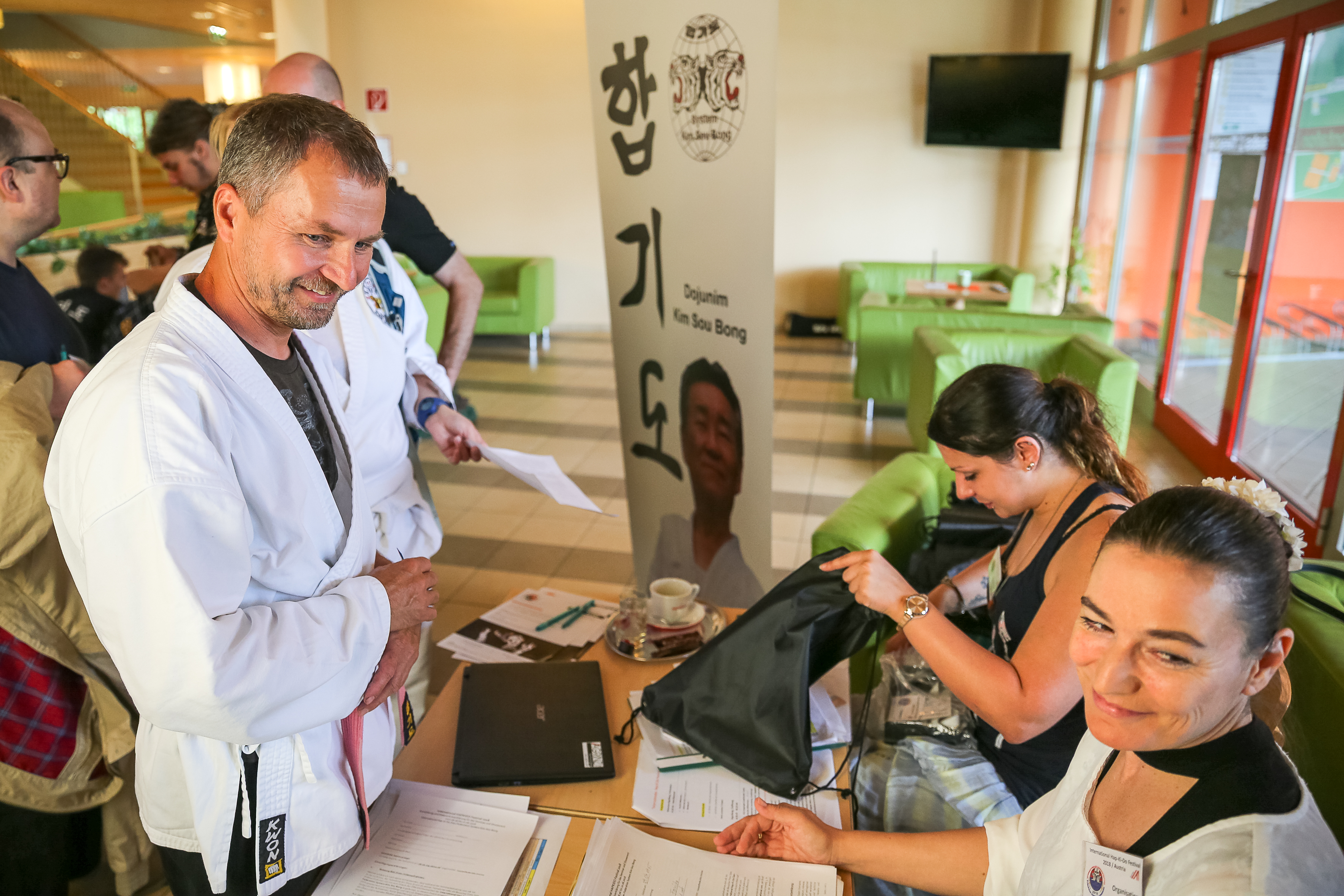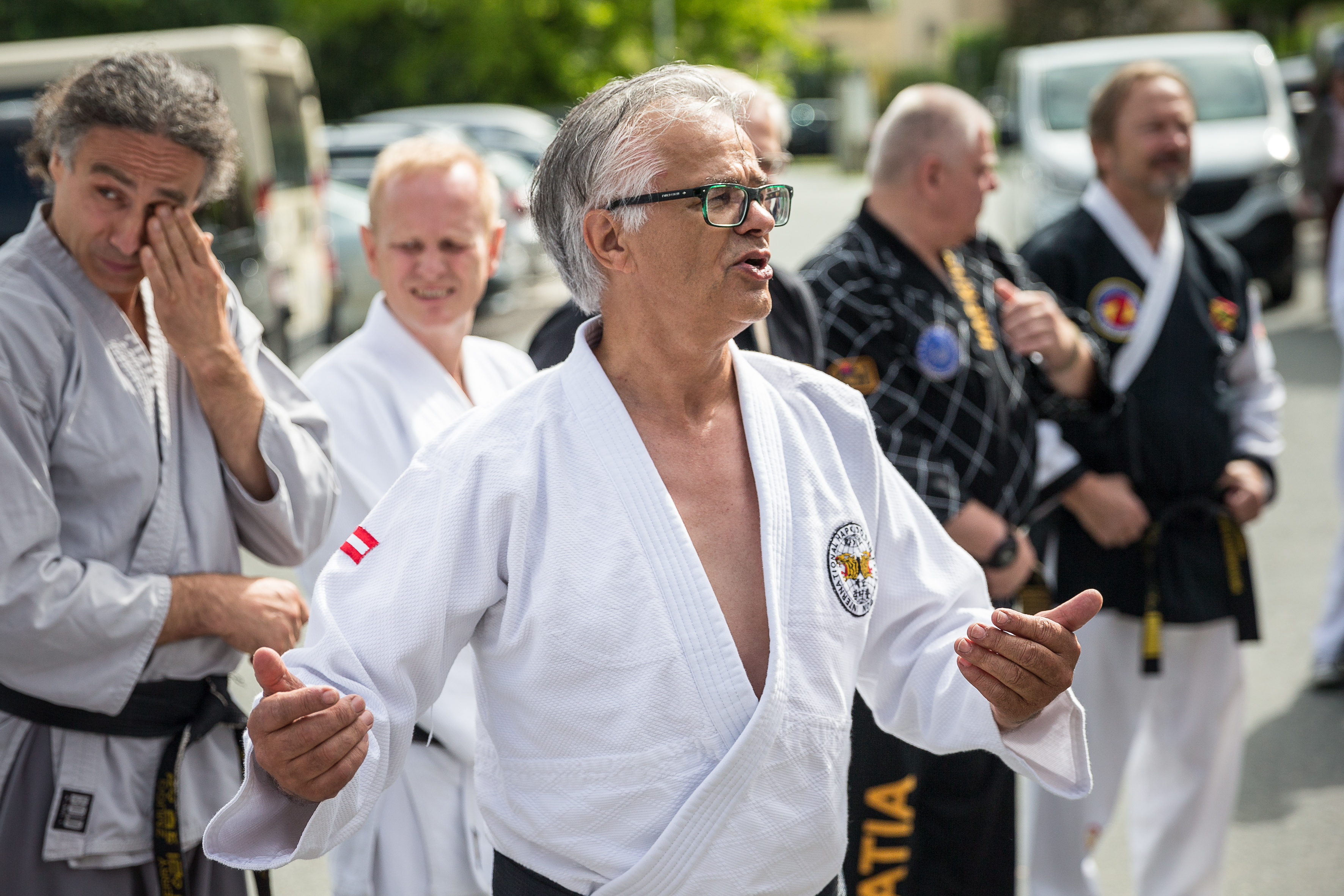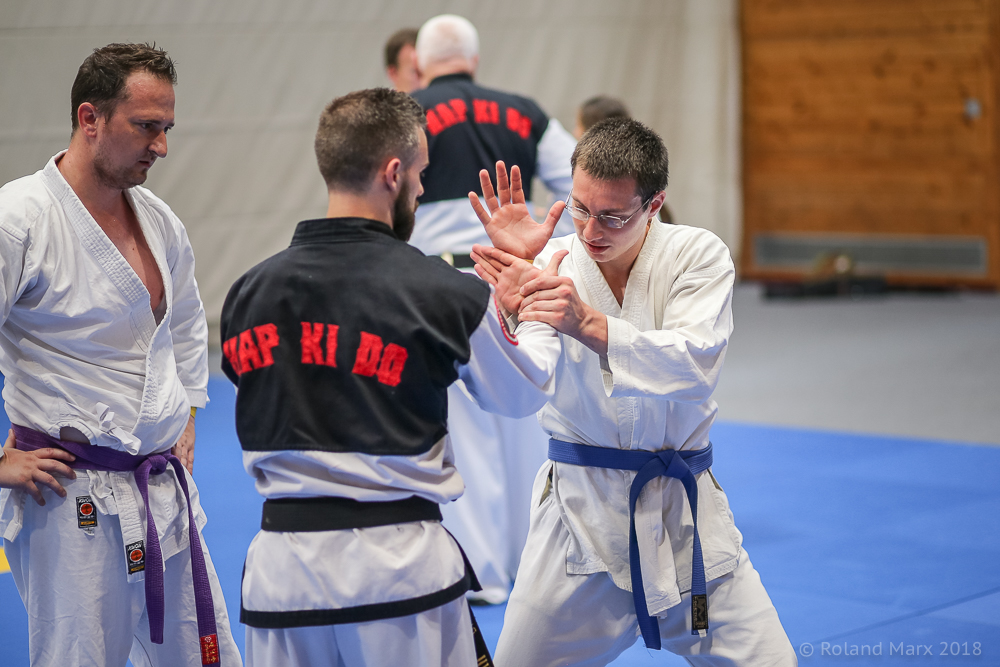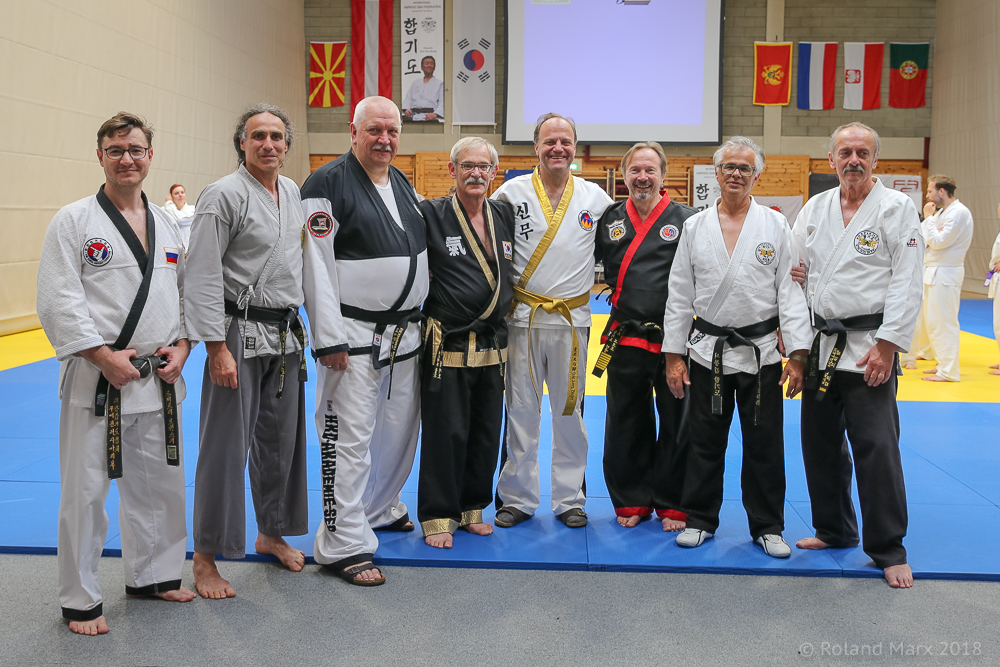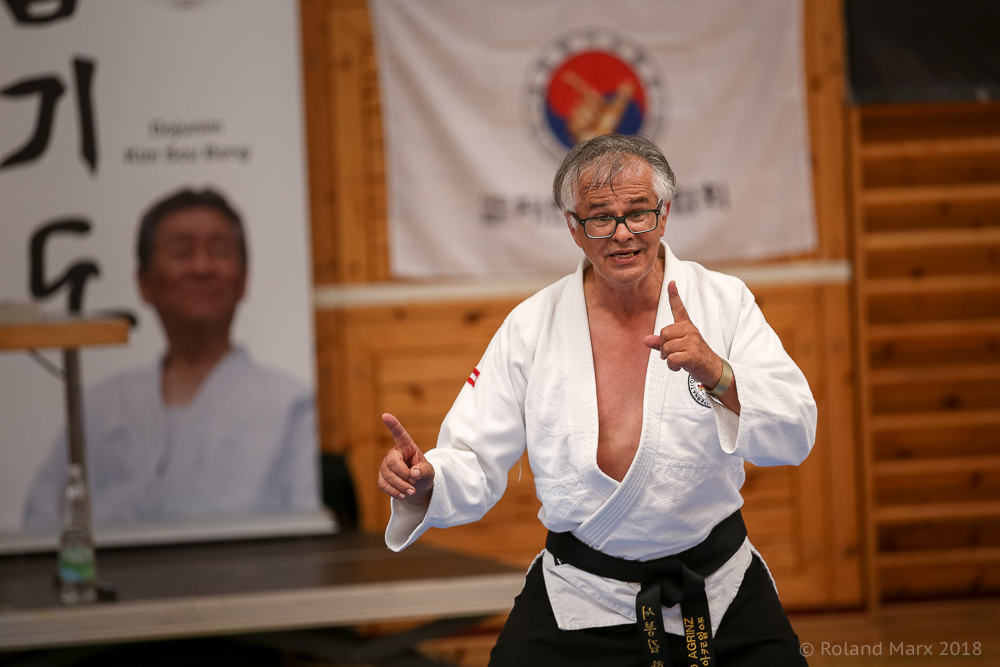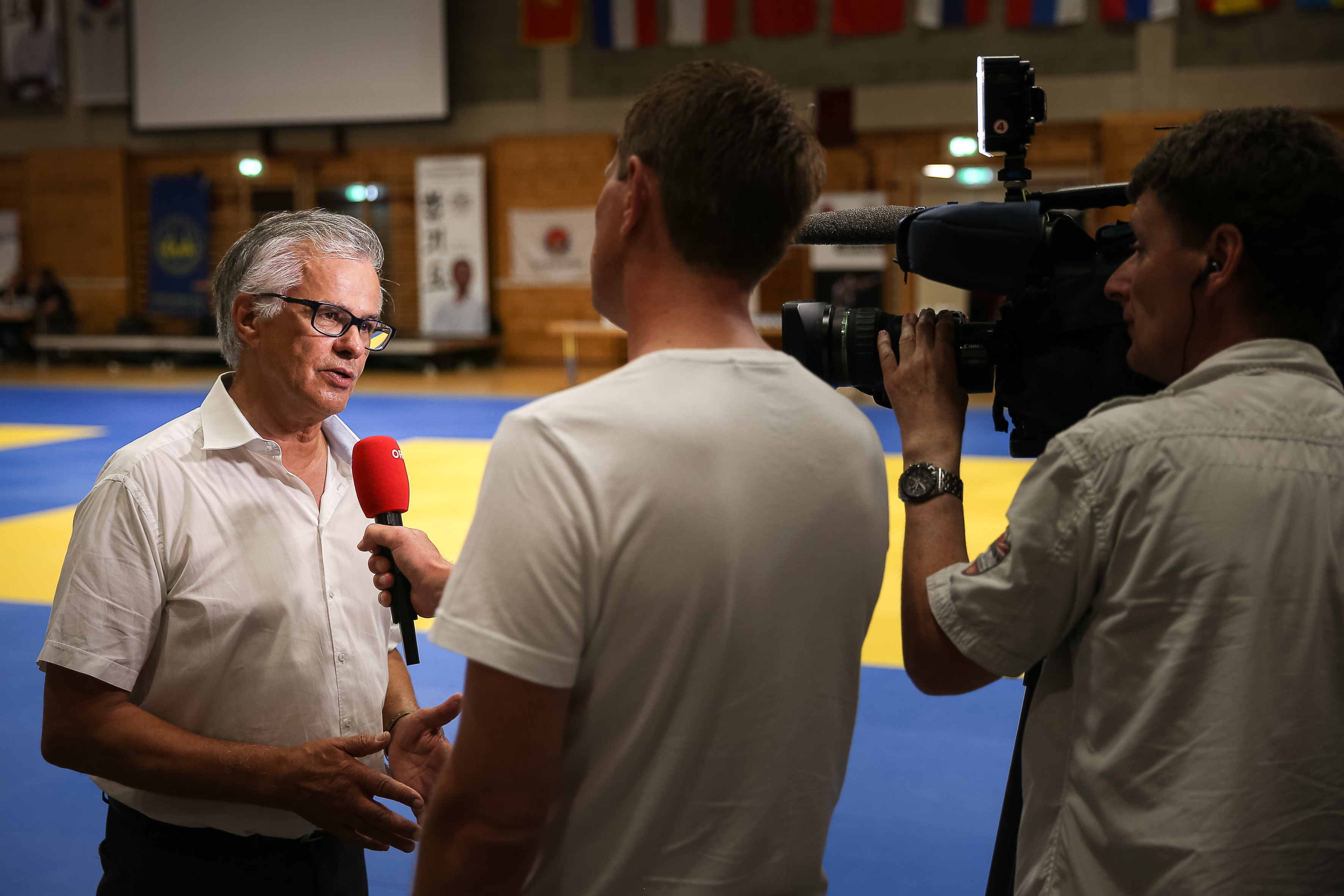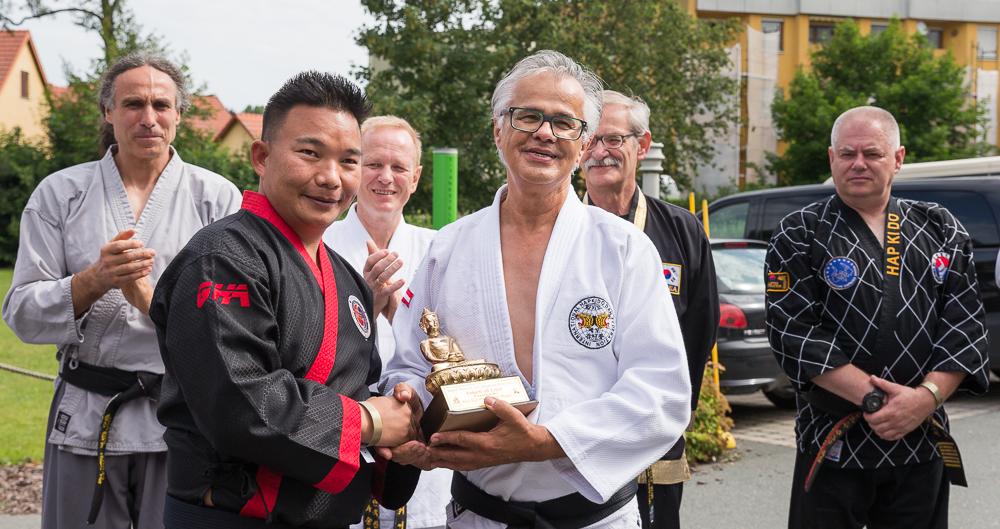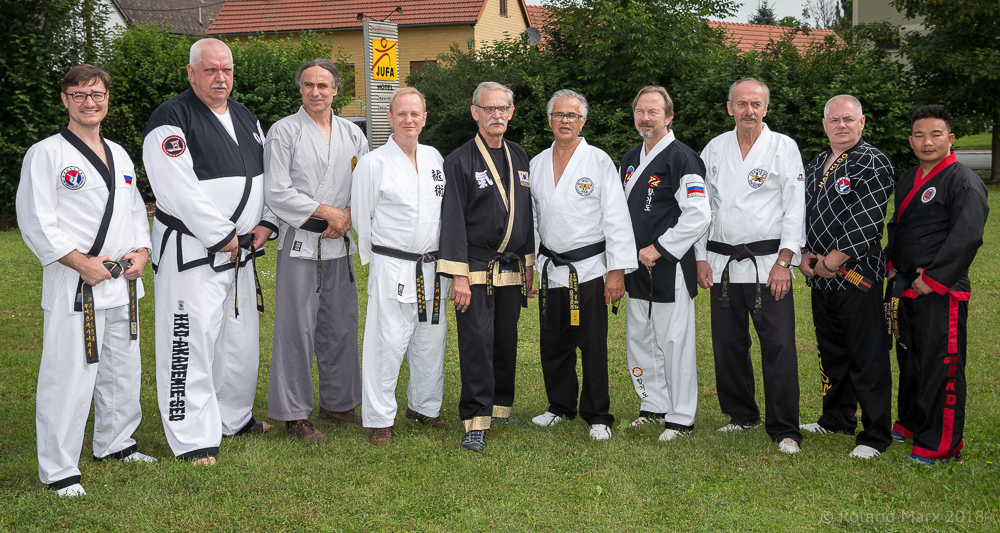Bericht über das Internationale Hap-Ki-Do-Festival 2018 /Austria
Zum ersten Mal in der Geschichte des HapKiDo fanden am Wochenende von 8. bis 10. Juni 2018 über 300 Kampfkünstler aus weiten Teilen Europas zusammen, um gemeinsam ihr Hapkido zu zelebrieren. Großmeister Gerhard Agrinz, Präsident der International HapKiDo Dan-Federation, lud insgesamt zehn Meister und Großmeister aus Österreich, Russland, Italien, der Schweiz, Kroatien und Deutschland dazu ein, über zwei Tage hinweg zahlreiche Seminareinheiten zu gestalten, die den Teilnehmern einen Einblick in neun verschiedene Stilrichtungen des Hapkido ermöglichten. Die Kampfkunstübenden hatten dabei die einmalige Gelegenheit, Gemeinsamkeiten zwischen den Stilrichtungen zu erfahren und gleichzeitig die jeweiligen Besonderheiten der Stilrichtungen kennenzulernen. Schnelle und effektive Selbstverteidigungstechniken, komplizierte Kombinationen aus Hebel- und Wurftechniken, spektakuläre Tritttechniken wurden ebenso gelehrt wie Basiswissen zur Erfassung und Bewertung einer Gefahrensituation und rechtliche Grundlagen zur Notwehr.
Im JUFA-Sportresort in Leibnitz in der schönen Steiermark wurden die Sportler mit vorzüglichem Essen und erfrischenden Getränken versorgt. Das gesamte Wochenende hinweg herrschte eine ausgelassene Atmosphäre, die den Anschein erweckte, als würden sich die vielen Teilnehmer schon seit Jahren kennen. Tatsächlich wurden die Pausen ausgiebig dazu genutzt, neue Kontakte zu knüpfen und die neu erlernten Techniken und Bewegungen in kleinen Gruppen aufzuarbeiten und Details zu erfragen. Unter blauem Himmel und strahlendem Sonnenschein war bei allen Kampfkünstlern weit und breit keine Spur von Konkurrenzdenken zu spüren. Stattdessen wurden Erfahrungen ausgetauscht sowie viele offene Gespräche über die individuellen Trainingsmethoden und die jeweiligen philosophischen Ansätze der HapKiDo Kampfkunststilrichtungen geführt. Während es beim Kampfsport stets darum geht, gegen eine andere Person zu kämpfen, geht es in der Kampfkunst „um eine Lebenseinstellung, um Durchsetzungsvermögen, das man dann auch im Leben einsetzen kann“ (Zitat Großmeister Gerhard Agrinz aus dem Fernsehbeitrag des ORF).
Ein weiteres Highlight des Festivals war die öffentliche Präsentation der „HapKiDo Kampfkunst“ am Samstagabend. Vor mehreren hundert Zuschauern gaben HapKiDo Großmeister und Meister sowie HapKiDo Kampfkunstschulen/Vereine und Organisationen akustisch untermalt mit rhythmischen Klängen traditioneller Trommeln in kurzen Demonstrationen einen Querschnitt ihrer Kunst zum Besten.
Begleitet vom österreichischen Fernsehen bot dieses öffentliche „HapKiDo Event“ den geeigneten Rahmen, um sich bei den HapKiDo Dozenten für ihren unermüdlichen Einsatz hinsichtlich der Weiterverbreitung dieser einzigartigen Kampfkunst und für ihre Beiträge zu den Seminareinheiten, die in Summe die Vielfältigkeit des HapKiDo-Festivals geschaffen haben, zu bedanken.
Großmeister Gerhard Agrinz sprach den nachfolgend angeführten Festival-Dozenten seinen persönlichen Dank aus und überreichte jedem einzelnen eine Anerkennungstrophäe.
Dank und Anerkennung erhielten:
Prof. Dr. Jürg Ziegler, 10. Dan Sin Moo Hapkido, World Community Sin Moo Hapkido
Detlef Klos, 9 .Dan Jun-Tong-Wong Hapkido Hanminjok Hapkido Association
Perry Zmugg, 9. Dan Sin Moo Hapkido, Zmugg Körper Kampf Kunst Center
Mladen Kuznik, 8. Dan Kudokwan Hapkido, Korea Hapkido Federation
Gerhard E. Hermanski, 8. Dan Hankido-Hapkido, Bundesakademie koreanischer Kampfkünste
Demit Momod, 7. Dan Hapkido, World Hapkido Federation
Volker Gößling, 6. Dan Hapkiyusul, Deutscher Hapkido Bund
Karl Müller, 6. Dan Hapkido, International Hapkido Dan Federation System Kim Sou Bong
Dmitry Lozhenski, 4. Dan Hapkido, Korea Hapkido Federation
Abschließend dankte Großmeister Prof. Dr. Jürg Ziegler in seiner Laudatio dem Organisator Großmeister Gerhard Agrinz für dessen Einsatz und dessen Initiative, die dieses besondere und bislang einmalige Hapkido-Event in Europa möglich gemacht haben.
The martial arts event of the year
International Hap-Ki-Do Festival 2018
is an event of international format and the biggest within Europe, where nearly all active European HapKiDo martial artists come together. Ten HapKiDo grand masters and masters of nine different styles will give an insight in their competence and present their specific HapKiDo in more than 40 seminar units. The schedule of the seminar units allows all participants to attend at least one unit of each speaker. The highlight of the event is the public presentation on Saturday evening, when HapKiDo will be presented in its variety and dynamics to the visitors.
Dojunim Kim Sou Bong laid the base for this festival already in the 70s, when he asked himself, if HapKiDo-ka need championships or tournaments. Especially in Europe people tried to present the competitive attractions of this sports and to reach master degrees. This led the martial art become economic, commercial and politically modified, what is contrary to its original sense. As everybody saw a competitor in the other person, aggression and inharmonious behaviour during fights was the result. In order to preserve and appreciate the true values of the martial art, HapKiDo should from now on be demonstrated with great joy and free of any aggression in the course of a festival. All participants shall have the opportunity to show their skills to their teacher. Dojunim Kim Sou Bong died on 4th of August 2011. In remembrance of him, his successor grand master Gerhard Agrinz has taken up his idea again and brought the “International HapKiDo festival 2018” into being. This festival has now been extended, so all supporters of HapKiDo martial art, regardless of style, shall meet, learn from each other and find new friends. Grand master Gerhard Agrinz communicated this idea to befriended HapKiDo martial art masters what resulted in an open, cordial cooperation. This made it possible to present a lot of seminar units of different HapKiDo styles. Following this idea in the future it shall be possible to bring to the fore the main social and ethical values of the HapKiDo martial art, in particular the promotion of health.
As the host of this festival I pay tribute to everybody who contributed to the success of this meeting and say on behalf of all HapKiDo martial artists
THANK YOU / KAMSAHAMNIDA
Martial art - HapKiDo
HapKiDo, the art of unarmed self-defence
HapKiDo is a defensive and unarmed form of self-defence, it is a martial art and a way to develop the personality. Defensive in this regard means, that the techniques are used only in situations, where you are definitely faced with an attack.
This martial art with its free development potentials demand and encourage the characteristics and the personality of the students.
In general it is difficult to follow the history of development of martial arts. We know that several martial arts techniques have their origin in the Indochina area from where it spread into the East Asian area together with Buddhism around 2000 years ago. Also the roots of HapKiDo can be found in Buddhism. This you can see from the fact, that HapKiDo uses several locking, joint and power utilization techniques following the basic idea only to incapacitate the attacker.
Choi Young Sul was the first person who combined and united several Corean styles to one system - the "hard" school with kicks and punches – with the so called “soft” school and its knowledge of power utilization techniques, which he had learned in Japan. First Choi Young Sul called his style "Yu Kwon Sool" but later on he renamed it to "Hap Ki Yu Kwon Sool."
His student Dojunim Ji Han Jae kept on combining all styles too, which he had learned and in 1958 he called his martial art "Hap-Ki-Do".
The first HapKiDo school was founded in 1958 by Dojunim Ji Han Jae. In 1959 Ji Han Jae moved his school to Seoul, the capital of South Korea, from where he and the first HapKiDo generation of masters like Kwang Sik Myung, Bong Soo Han, Kim Sou Bong and many others propagated HapKiDo all over Korea. Due to the efficiency of this system in the years 1970 to 1979 it was possible to staff the entire guard of the Korean president “Park Chung Hee” with HapKiDo people.
After the political revolution in 1979 many HapKiDo masters went abroad, mainly to America and Europe, only a few of them remained in Korea. Dojunim Ji Han Jae immigrated to the USA in 1984, after a short trip to Germany, where he met his student Dojunim Kim Sou Bong. From this time on he called his style “Sin Moo- HapKiDo”. Dojunim Kim Sou Bong already emigrated to Europe/Germany in 1964.
The history of HapKiDo in Europe began in 1964 when Dojunim Kim Sou Bong came to Ruhr area in Germany together with a handfull of other men from Korea. Some of these men had learned martial arts like HapKiDo or Taekyon in Korea and they wanted to keep on practicing in Germany. First they held their private training in the cellars of their accommodation.
HapKiDo came to Austria 1972 in the course of a summer workshop of the JIU JITSU-club Austria. Participants were people of different kinds of martial arts. There Kim Sou Bong presented his HapKiDo for the first time. In the following several courses took place in Graz during the weekends. The “1. Austrian HapKiDo club Graz” was founded in September 1974. The training used to take place in the cellar of Kernstockgasse.
On 30th of August 1978 Gerhard Agrinz from Graz was the first Austrian person passing the exam for the HAP KI DO masters degree under Dojunim Kim Sou Bong.
Hap-Ki-Do System Kim Sou Bong
The essence is the real character, that means the execution of a HapKiDo self-defence technique according to the system Kim Sou Bong always requires being faced with an active attack. The attack action is deliberately harmonized, controlled and ends up in the realization of the technique under application of the HapKiDo principles efficiently.
The basic education creates the preconditions for a real self-defence. The HapKiDo-ka is picked up at his own physical and psychic level according to his actual constitution. The HapKiDo-ka creates an awareness, which allows him to develop the power of resistance and assertiveness as well as the will to fight. Real and situational application of techniques means, that the techniques themselves are functional, real-life applicable and efficient.
The teaching system waives the competitive sports abilities, acrobatics and show. Utilization and handling of so called classic weapons is definitely not aim of the teaching system.
The basic principle of the Kim Sou Bong self-defence philosophy is: “Do never attack, but never accept to be attacked!” This had always been his principle and it means, that you should destroy any attack already in its beginning using an “anticipating action”. This minimizes the risk, but it requires self-confidence, anticipation, quickness, a clear will and a correct technique. The philosophy of “attack-anticipation” allows it to avoid the attack by blocking or to incapacitate the attacker by an “anticipation-counterattack”.
The psychological and pedagogical aspect of the teaching system Kim Sou Bong allows to adapt the “original HapKiDo teaching” for the European mentality.
This refers to the teaching itself with regard to the development of the personality on the one hand, and on the applicability of real-life and effective self-defence techniques on the other hand.
The teaching system’s aim and focus is on health, means an injury-free education. This is ensured by a specially developed communication control system.
How do we need to proceed or which method shall we apply if we want to teach martial art or HapKiDo self- defence to people? The answer is the „TMR system“ developed by Dojunim Kim Sou Bong. This system is independent from HapKiDo and it provides a completely new approach in education.

